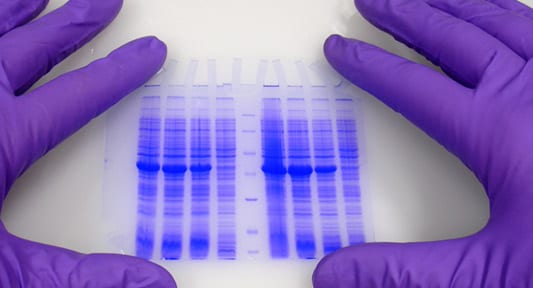
Tests used to detect Lyme
The Lyme disease is based on a clinical diagnosis - medical history, symptoms and tick exposure. Because typical diagnostic tests for Lyme are often not infallible, a negative test does not mean you don't have Lyme..
There are many reasons why someone who really has Lyme might test negative. Many people have not had time to develop antibodies; the immune system may be suppressed; or the person may be infected in such a way that the test cannot measure it.
The Lyme disease is known to suppress the immune system and 20 to 30 percent of patients have a false negative test.
52 percent of patients with Lyme disease are negative by Elisa test but positive by Western Blot (Donta 2002). Y 20 to 30 percent of confirmed Lyme disease cases are seronegative. (Agüero- Rosenfeld 1996, 1993; Donta 1997)
Tests can not only help to diagnose, but also to manage the disease. A good test helps the doctor to assess the severity of the disease, estimate the patient's prognosis, monitor the course of disease progression, stability or resolution, detect relapses and select drugs or adjust therapy.. Unfortunately, there is no test with all these capabilities for Lyme disease.
The most common diagnostic tests for Lyme disease are indirect. They measure the patient's antibody response to the infection, not the infection itself. The two most commonly used antibody tests are the enzyme-linked immunosorbent assay (ELISA) and the Western blot. The Centers for Disease Prevention in the USA recommend that doctors first do an ELISA for detection of the disease and then confirm the disease with a Western blot.

During the first four to six weeks of Lyme infection, these tests are unreliable because most people have not yet developed the antibody response that the tests measure. Even in later stages of the disease, the two-level test is highly unreliable.
Unlike Lyme, for example, HIV/AIDS is diagnosed by tests that are both highly sensitive and highly specific. They are accurate in more than 99% of cases. In Lyme disease, the second test is highly specific. So there are few false positives. But unfortunately, the screening test is highly sensitive and does not accurately identify patients who have Lyme disease.. The two-tier test system misses approximately 54% of patients (Stricker Minerva 2010).
LYMECHECK®, our proprietary testing method
Biosalud Day Hospital is the only clinic in Spain specialising in the diagnosis and treatment of Lyme disease and its medical director, Dr. Mariano Bueno is a member of ILADS, the leading organisation in the fight against Lyme disease.

Anyone who believes they have been bitten by an Ixodes blacklegged tick and may have been infected with the borrelia burgdorferi bacterium can take our own specific and patented test: Lymecheck®.
Unlike these tests that we have discussed, which are usually performed in the USA, Biosalud's Lymecheck® has a higher percentage of safety. Why? Because the Lymecheck® tests for Lyme but it will also let us know which co-infections need to be tested for.
The Lyme test The Lyme disease is usually accompanied by other co-infections in addition to Borrelia, such as Coxsackie, Bartonella, Babesia, Rickettsia, Chlamydia trachomatis, Chlamydia pneumoniae, Mycoplasma, etc.¦.
When you consult with our medical team and depending on your symptoms, we will advise you on which co-infections to test for.
All people diagnosed with the following diseases: fibromyalgia, rheumatoid arthritis, chronic fatigue syndrome, dementia, autism, Parkinson's, multiple sclerosis, ALS, chron's disease, ulcerative colitis, Lupus, etc., and whose treatment prescribed by their doctor does not control the evolution of the disease, should have Lymecheck®.
The Lymecheck® allows you to know if you have a borrelia burgdorferi infection and the co-infections you may have, and thanks to this test we can prescribe the best protocol for you. for your personalised treatment.
If our sample is positive, it has a reliability of 99 percent.
Lyme is a complex disease that is very difficult to diagnose due to the great variety of its symptoms. But at Biosalud we have the Lymecheck, the only method accredited by the ILADS here in Spain. If you want certainty, come to Biosalud!


3 thoughts on “El problema de los falsos negativos en los análisis de Lyme”
How much is the lymecheck, I am abroad?
Hello,
Can it be done in Barcelona?
I have symptoms that made my doctor suspect that I might have borrelia, but my blood test showed that I had borrelia:
Ac. IgG Borrelia burgdorferi sèrum Negatiu
0.140
Ac. IgM Borrelia burgdorferi sèrum Negatiu
0.121
Ac. IgG Coxiella burnetii serum Negatiu
0.084
Hello, Joan our clinics are in Madrid and Zaragoza, we recommend that you contact any of our telephone numbers (976 22 11 33 and 910 88 62 92) to study your case.
Best regards
Comments are closed.